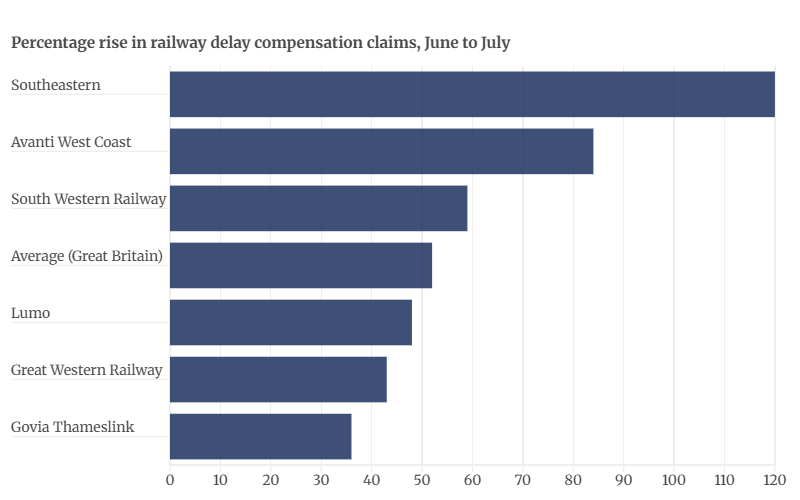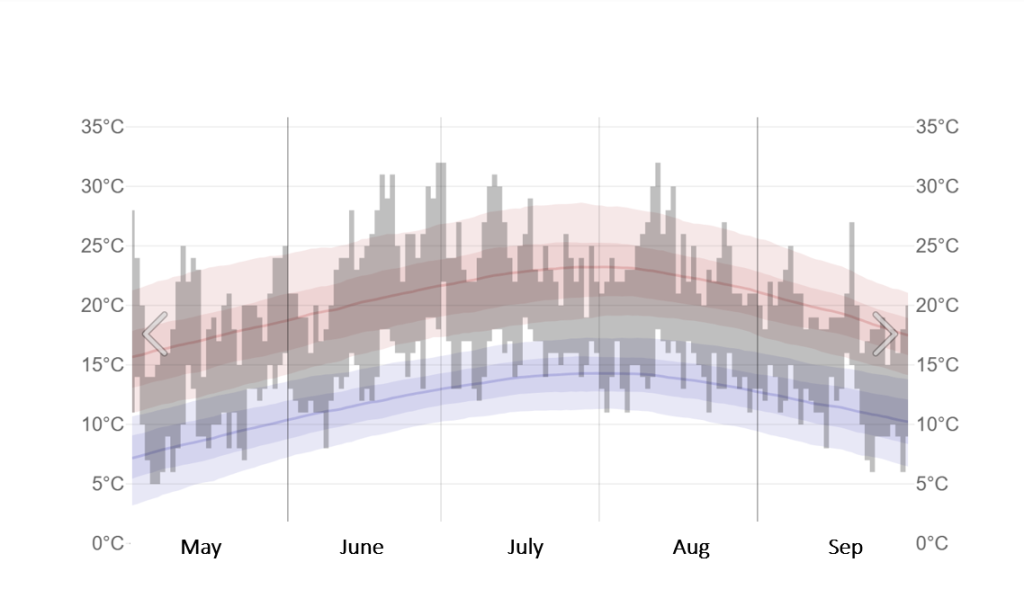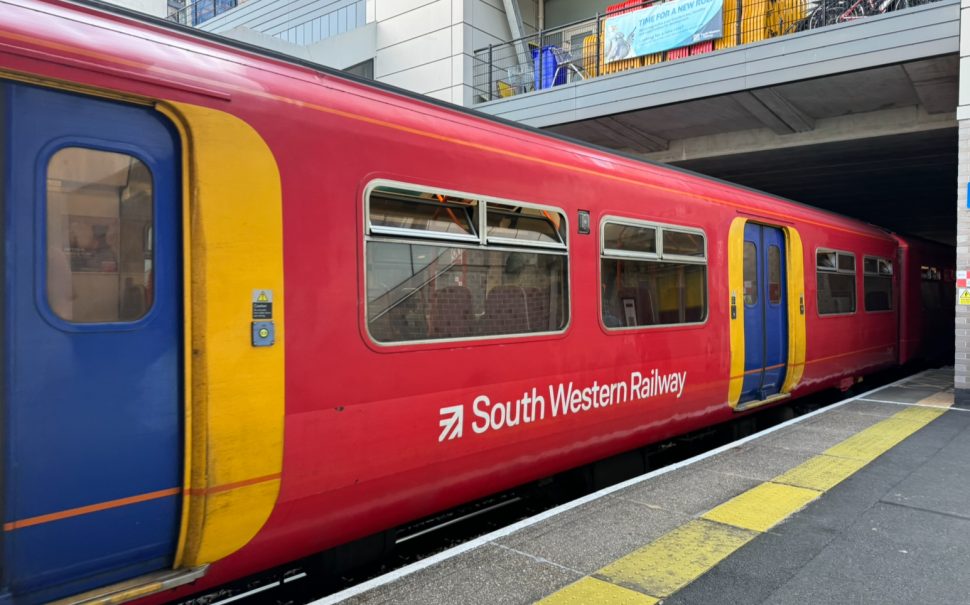This summer’s heatwaves helped some UK and London railways to receive more than double the usual number of delay compensation claims in July.
According to new statistics from the Office of Rail and Road (ORR), recently nationalised South Western Railway saw a 59% jump in passenger claims following a month of hot weather, signal failures and trespass incidents, while Avanti West Coast saw 84% more claims made compared to June.
Great Western Railways saw a spike of 48% in compensation claims, meanwhile, as several older rail lines in the south of England and the Thames Valley had speed restrictions imposed on them in July – a result of record-breaking summer heat that saw tracks hit a scorching 50oC and risk buckling.
A Network Rail spokesman said: “Most of the network can operate when track temperatures reach up to 46°C, which is roughly equivalent to an air temperature of around 30°C. However, rails have been recorded at temperatures as high as 51°C.
“We’re always improving how we measure and calculate rail temperatures. One way we’re doing this is by installing probes that alert us when track temperatures rise to give us chance to take action and stop a problem before it happens…we work hard to strike the right balance and make the network as resilient as possible all year around.”
These statistics come as the independent Climate Change Commission warned the government this week to expect a potential rise in temperatures of 2oC in the UK by 2050, with hotter summers going forward.

Meanwhile, Avanti West Coast, operating out of Euston, saw a record 203,740 compensation claims over July, growing by 84% in a single month.
The operator claimed that weather played a part in this drastic upswing.
An Avanti West Coast spokesperson said: “Between 22 June and 19 July around 80% of delays were caused by external factors including severe weather and infrastructure issues.”
South Western Railway’s spokesperson, though, said: “Performance on our network over the summer was not what we, or our customers, rightly expected.
“While there was some impact from the record-breaking temperatures we experienced, performance was mainly affected by major signalling failures at London Waterloo and highly disruptive trespass incidents. “
The summer of 2025 was, on average, the hottest on record for the UK, and delay compensation claims rose on average 5% from April to September, compared to the same period a year before.

It is typical for train delays to rise significantly in the summer, though with risks of track damage on key lines during this year’s heatwave, experts have highlighted a need for investment.
Bob Ward, Chair of the London Climate Ready Partnership, said: “The UK is not prepared for current levels of warming and we’ve seen the impact of this on transport systems and especially railway systems in many ways.
In July 2022 we had temperatures exceed 40oC for the first time and that was a shock for climate scientists – they didn’t expect to see that till mid-century.”
Expanding rails are not the only danger, according to Ward, who highlighted how extreme heat can cause overhead cables to expand and make contact with trains, and mechanical switches to fail.
He said: “You can’t just respond by making trains go slower…our rails need to be able to withstand temperatures higher than they currently do.
“That means replacing rails, it means replacing overhead cables, and it means replacing mechanical switches…it will require a massive investment.
“If the rail industry doesn’t make the investment, it loses out and the rest of the economy loses out…we will have to pay now, and pay upfront, to deal with the future climate, or pay even more in the long run.”
Both the economic impact and decreased productivity that result from railway delays were stressed by Ward.
Excluding November 2024, which saw both extreme weather events as well as widespread industrial action, July 2025 saw the highest total number of delay compensation claims on Great Britain’s railways in the last 8 years.





